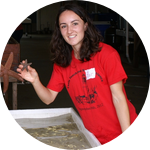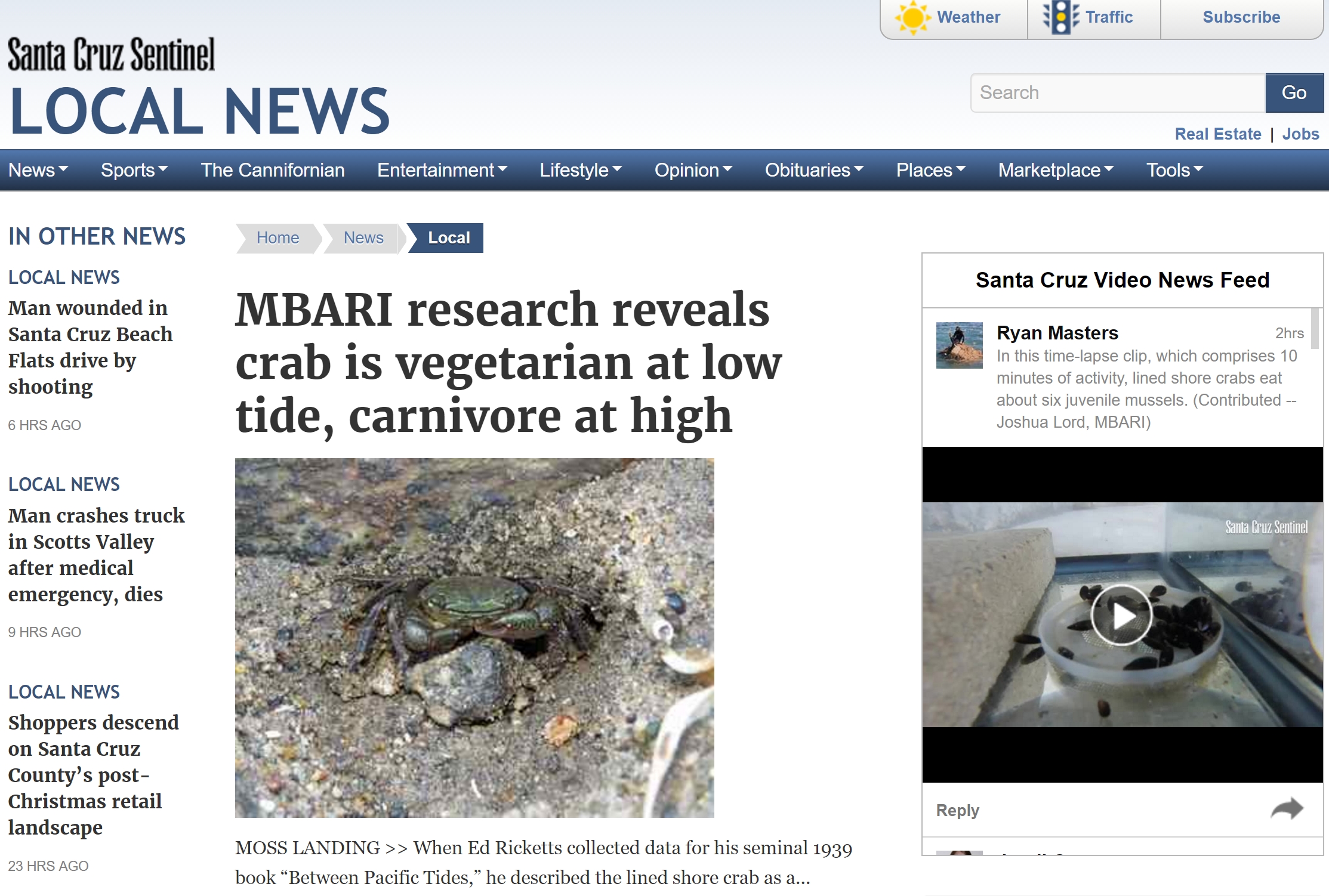About This Project
Shells defend marine snails from crab predators, but it is difficult to produce shells with ocean acidification because there are fewer building blocks available in the water. I will test snails' abilities to defend themselves in acidified water and find out what types of snails are most resilient. We know very little about how climate change will alter predator-prey relationships, so this will help us predict changes in marine communities and manage and conserve snail populations.
Ask the Scientists
Join The DiscussionWhat is the context of this research?
Inducible defenses, or the ability of species to produce defensive structures or compounds when they are threatened, is common in terrestrial and marine environments. For mollusks and other shelled marine organisms, this typically means producing a thicker shell when they sense the presence (chemical cues) of a predator. However, ocean acidification as a result of higher carbon dioxide levels in the atmosphere and the ocean can make it more difficult for some calcifying species to produce shells. The resulting thinner or weaker shells make some species like oysters or mussels more vulnerable to predators. Despite how important inducible defenses are in marine systems, we don't know how they respond to ocean acidification or changing ocean temperatures.
What is the significance of this project?
This would be the first project to test whether or not ocean acidification affects inducible defenses of multiple marine species. The vast majority of climate change research has focused on responses of individual species, but we know that species interactions drive ecological processes in most ecosystems on land and in the sea. Multiple reviews of scientific research on climate change have concluded that understanding the effect of changing ocean conditions on marine communities (instead of single species) is a major gap and important area for future research. If we don't understand how one change in one species ripples through the benthic community, we are unable to make predictions about impacts of climate change or effectively manage fisheries and conservation areas.
What are the goals of the project?
To test how snail defensive abilities respond to acidification, I will weigh snails and then put them in tanks, half of which contain green crabs. I will feed snails with purchased mussels and maintain pH levels of 8.0 and 7.6 using the CO2 control system. Ocean pH is around 8.0, and pH 7.6 represents future acidified conditions, with fewer shell building blocks available in the water.
I will weigh snails again at the end of the experiment to see how thick the new shell is. I will cut off the new shell area and send it to a lab for X-ray diffractometry, which will tell me if acidification changed the shell chemical makeup. I will do this in February-May 2017, publish the results in a scientific journal and present them at the Western Society of Naturalists conference.
Budget
The mussels are food for the snails so that I can measure how much they eat during a 3-month experiment. They eat a lot, so I will order mussels from an aquaculture company. I will use the scale for detailed measurement of shell growth and X-ray diffractometry (through UC Santa Barbara) will tell me if ocean acidification caused a change in what the shells are made of (different types of shell material). The pH/temperature control system is essential so that I can control the conditions that snails are exposed to during the experiment--this is a relatively cheap system but can do the type of control necessary here. Because I will be collecting the crabs and snails for this experiment from multiple sites several hours from where I work, I have included a small travel budget for gas and tolls. I already have a Scientific Collecting Permit, and I am re-using tanks and other basic supplies from another experiment to minimize costs.
Endorsed by
Meet the Team
Joshua Lord
It was never my goal to become a marine biologist until I took a single class on the subject during my senior year at Colby College--one field trip to the tidepools and I was hooked! After college I went to graduate school at the University of Oregon, where I spent my time at the coast at the Oregon Institute of Marine Biology. I published several papers on the gumboot chiton, a large, obscure marine mollusk in the Pacific Northwest, and got my MS in marine biology.
I got my PhD in Oceanography from the University of Connecticut in 3 years, publishing 5 more papers on biofouling and inducible defense in oysters. The project on oyster shell defenses was when I first became interested in how mollusks defend themselves, and I have focused multiple projects on that topics since then.
After graduating, I spent one year teaching and conducting research at Bates College in Maine, where I taught marine biology courses and worked with students on research projects targeting climate change and invasive species. This was an enjoyable and rewarding year, and I started an international program working with high school students and teachers to monitor spread and growth of invasive fouling species growing on the docks of marinas around the world. This iBARGE project (ibargeprogram.wordpress.com) resulted in 3 more publications, including one I co-wrote with several students and a high school teacher for a science education journal.
I have spent the past year working on climate change and benthic ecology projects as a postdoctoral fellow at the Monterey Bay Aquarium Research Institute. I am passionate about using science to improve our understanding and management of the ocean, which has been the source of so much wonder in my life. I have published more than 15 scientific papers and presented my work at 10+ international conferences, and I take pride in doing an excellent job on all the projects I am involved with.
Additional Information
Project Backers
- 9Backers
- 23%Funded
- $871Total Donations
- $87.10Average Donation


